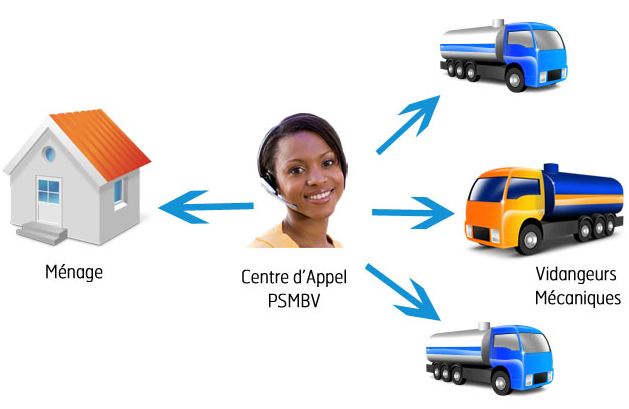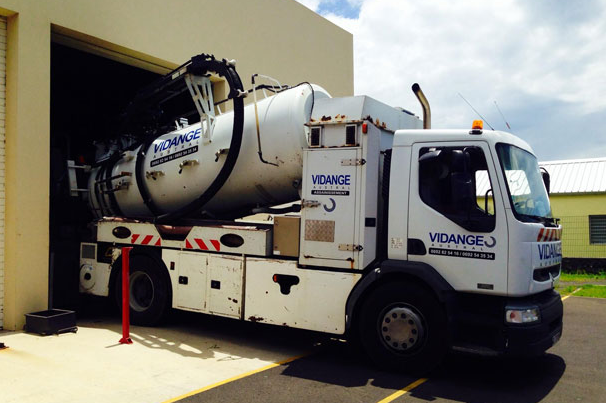Senegal’s Innovative Fecal Sludge Management System
Published on by Water Network Research, Official research team of The Water Network in Social
One of the most impressive advances in fecal sludge management is taking place in Senegal, thanks to the Program for the Structuring of Fecal Sludge Market (PSFSM).
Realizing the need to address this situation and improve the entire fecal sludge management value chain in the region, the National Sanitation Office of Senegal (ONAS) partnered with the Bill & Melinda Gates Foundation to create the Program for the Structuring of the Fecal Sludge Market (PSFSM).

This program has two primary aims: provide high-quality, inexpensive mechanical emptying services to consumers while also increasing the incomes of professional emptiers.
A key aspect of PSFSM is the call center, which facilitates a direct link between customers and emptiers. When the customer calls the center and requests emptying at a particular place, date and time, emptiers submit quotes through SMS. Once the bidding process is over, the lowest bidder and the customer are notified and the service is confirmed.
This cutting-edge program allows for easy access to pit emptying and low prices for customers, increased opportunity for emptiers to expand their business, and quality control and monitoring conducted by the call center.
PSFSM includes a guarantee fund to promote the development of the fecal sludge emptying industry. Companies are provided with greater access to credit so they can improve their trucks and equipment and obtain the proper licenses and certifications. Similarly, PSFSM also works to help customers both save and pay for emptying services by making mobile money services more readily available.
Another crucial aspect of Senegal’s fecal sludge management system is handing over responsibility of fecal sludge treatment plants (FSTPs) to the private sector. Previously, when the plants were managed by the government, they were in a state of advanced deterioration, they were not profitable or efficient, and they produced a minimal amount of byproducts from the sludge.

With this unique public-private partnership now in place, the result has been the renovation of facilities, improvement of maintenance and operations, increased administrative organization, more marketing of dried sludge byproducts, and greater profitability.
Finally, the PSFSM has implemented a communication plan to ensure that the people and communities benefitting from these improvements and innovations take active ownership of the program and participate in significant behavioral change to ensure its success.
With this communication plan, the government acknowledges that the only way improved sanitation practices will be adopted by the target populations is if they fully understand the importance of the new system, how the improved technology works, and how it will benefit their families and communities.
Senegal’s fecal sludge management program is truly groundbreaking in its multi-pronged approach and its attention to every aspect of the value chain.
In just three and half years of operation, the PSFSM has seen significant success in the areas of efficiency, profitability and stakeholder satisfaction. Now other nations throughout the world can look to Senegal’s success—as well as the successes of South Africa and India—as examples of how government, private companies and citizens can work together to solve one of our most complex challenges.
Read more at: All Africa
Media
Taxonomy
- Raw Sewage Recycling
- Public - Private Partnerships
- Sanitation
- Sewage
- Water & Sanitation
- Water & Wastewater
- Sanitation Awareness
- Water Sanitation & Hygiene (WASH)
- Sewage & Allied Waste